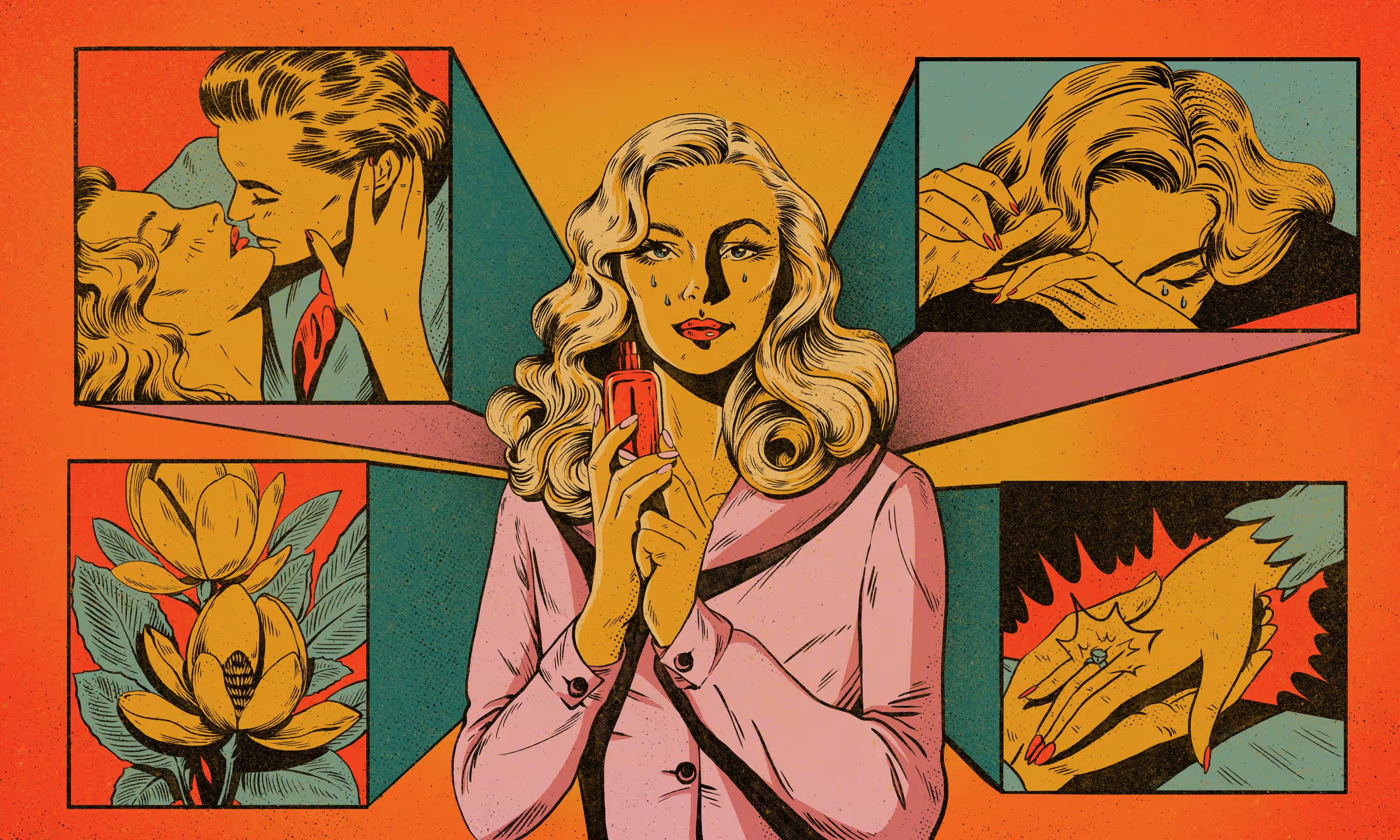On Fragrance, Or Sidestepping The Problems Of The Flesh
In this month's Ask Ugly, an exploration of the "signature scent".
The next installment of Ask Ugly, my monthly beauty advice column for the Guardian, is here!
A preview:
Hi Ugly,
I’ve recently undergone a hunt for a perfume, testing dozens of samples. While I’m aware this all started because I was seeing 20 TikToks a day dishing out scent recommendations mashed with beautifully aesthetic photos, there’s also something deeply appealing to be about having a “signature scent”.
This seems like a natural want – to define the “self” and differentiate it as unique, but I’m curious how you’d think about expressing this in a “healthier” way?
– Make It Make Scents
In late 2023, I predicted fragrance would be the focal point of the beauty industry in 2024, thanks to its exploitable associations with inner wellbeing. There’s also its scientific link to the limbic system: smell is the only one of the five senses that bypasses the thalamus, an area of the brain associated with logic, and instead interacts with the “reptilian” brain structures (hippocampus, amygdala) associated with emotion and memory. And I was right!
Perfume sales are surging in both prestige and niche categories this year. “Outfit of the day” posts on social media (#ootd) are slowly being replaced by “scent of the day” posts (#sotd), and screenshots of notes from perfume forum Fragrantica.com function as faceless selfies.
Jean Madar, chairman and CEO of InterParfums Inc, recently told Bloomberg that fragrance is part of a person’s “core identity”. And while cosmetic companies can face criticism for conflating external products with existential outcomes – like a facial serum that implies a “secure attachment” style, the absurdity of which I will never shut up about! – perfume conveniently sidesteps the problems of the flesh. It’s not trying to change how you look, but how you feel, and, for the span of a spritz at least, it does. In the age of wellness-as-beauty and neurocosmetics, the science of scent is marketing gold.
But the more I think about your question, Make It Make Scents, the more I wonder if what we’re after here is not a sense of self but a (related) sense of life.
I say “we” because – despite my documented skepticism of beauty brands – I, too, am powerless against a good perfume ad.
Last month, casually depressed and subconsciously seeking comfort and some sort of release, I spent $240 on a scent called Tears by Régime des Fleurs. “What a luxury to weep,” the website read. It described the perfume as “emotion in liquid form, the romance and the sadness”. It promised “nostalgia” too, with notes of lilac to remind me of my grandmother’s front yard and frankincense to call up childhood Sundays spent in incense-blessed church pews. I suppose I wanted Tears to take me back to a time when someone who loved me baked me cookies every week, when I believed in God and goodness, and life stretched ahead of me in an endless expanse of hope and potential.
Of course, it didn’t do that. It smelled fine. I felt something, for a second. But I was still me, and I was still mostly numb.
I thought of that perfume the other day while reading the preface to Henry James’s 1902 novel The Wings of the Dove. James summarized it as the story “of a young person conscious of a great capacity for life” – someone “passionately desiring” to “achieve, however briefly and brokenly, the sense of having lived”.
Something clicked: how to explain Tears if not a brief and broken sense of having cried?
And Charlotte Tilbury’s new “emotion-boosting” fragrance More Sex, “designed to enhance feelings of sex”, if not a brief and broken sense of having sex?
The rest of my answer includes:
a history lesson re: the conflation of life and aroma
how this Covid-era perfume boom parallels the post-bubonic plague perfume boom
what mass loneliness, the lull in sex and friendship, and the rise in anxiety and depression have to do with fragrance industry sales (we want to snort the essence of existence! we want feeling, straight to the brain! the future is bleak, but this fragrance smells like “you’re about to get what you want”, and I guess that’s good enough!)
how to actually get what you want from a “signature scent” without buying a “signature scent”
acknowledgment of perfume as an art form, a hobby, an escape, even a sort of poetry (I’m not a monster)
and more!
Click through to the Guardian to read the whole thing (and if you decide to share it with friends or on social media or whatever, please share it via the Guardian link).





As someone with fragrance allergies, I'd love to see more on this topic. For a while "fragrance free spaces" were a thing, and now I'm just glad covid normalized wearing masks in crowded public spaces.
I’m sorta baffled by the question. Why does a perfume have “to define the “self” and differentiate it as unique”? Isn’t that too much to expect from a perfume? Can’t we just wear a scent because it smells good? Not even because it makes us smell good, just because IT smells good and it’s nice to smell something good once in a while? Why does everything we consume have to be transformative? Why do we need to rationalize every purchase to death to make it make sense? Just wear a perfume you like because you like it, it doesn’t have to define who you are or do anything more for you than just smell good!